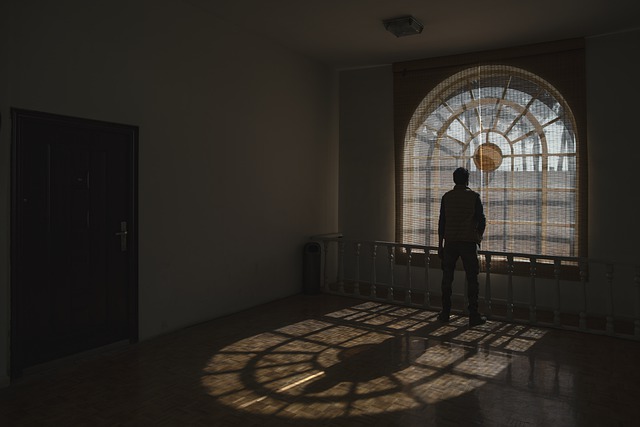Frank Ostaseski in an interview with Rheanna Hoffmann about death and the process of dying, mentioned his book based on his experiences of being with a thousand people as they died. His book, The Five Invitations: Discover What Death Can Teach Us About Living Life Fully, provides five principles or guides for living life with integrity, meaningfully and in alignment with our true purpose. Frank was the co-founder and director of a thousand-bed hospice, so his book is based on lived experiences and real stories of how people faced death, as well as the distillation of the “wisdom of death” from these deeply personal and moving experiences.
Frank maintains that death is the “silent teacher”, imparting understanding and wisdom about how we should live. He expounds his ideas and principles in a number of recorded podcast interviews, including What Can Death Teach Us About Living Mindfully. His recoded talk at Google focused on his book through the theme, Inviting the Wisdom of Death Into Life. A succinct explanation of the principles in his book, which he describes as “invitations to living”, is provided in his 26-minute edited interview with Steve Heilig of Palouse Mindfulness.
The five invitations to living learned from the dying
Frank emphasises that these invitations to living have been taught to him by the dying and by compassionately helping many hundreds of people with the process of dying. Understanding the following five principles and putting them into practice enables us to live life fully and mindfully:
- Don’t wait – we assume that life will go on as it always has, that our health, wealth and relationships will persist into the future. If nothing else, the Coronavirus should disabuse us of this belief and the associated perceptions. There is a tendency to put off changing the way we live because of this belief in continuity. However, living is precarious, nothing is certain. We can become absorbed in the busyness of life and put off any change – avoiding the need to slow down and really experience life and relationships. We can spend so much of the day planning our next activity or sequence of events. Frank maintains that we are reticent to fully “step into life” – “waiting for the next moment in life, we miss the present”. Frank urges us not to wait till our death to find out the lessons of dying.
- Welcome everything, push nothing away – whether it’s grief, loneliness, boredom or suffering, there is a lesson to learn if we don’t push away the feelings, emotions and thoughts that pervade our life. Frank suggests that we should welcome grief and fear and difficult feelings because these “moments” of discomfort are pivotal in our life for developing sustainable personal change, if we fully face them. He spoke of the grief he experienced working with the dying and how he adopted meditation, bodywork (the touch of a practitioner on a source of physical pain in his body) and holding and rocking newly born babies (a life-affirming activity) as a way to face the full emotional, physical and mental experience of grief – it’s as if he ritually experienced the life cycle of birth, living and dying as a way to manage his overwhelming grief.
- Bring your whole self to the experience – Frank made the point that in his work with the dying, the part of him that was most helpful was his vulnerability and helplessness because it acted as an “empathetic bridge to their experience”. These “weaknesses” became his strengths and enabled him to be fully present to them, to be-with-them. He has stated previously that authentic presence and compassionate listening are healing and supportive of people’s transition in both the challenges of living and of the dying process. He asserts that none of us is perfect but that we can bring our whole self to whatever we are experiencing – leaving no part of our self out of the interaction.
- Find a place of rest in the middle of things – we can find a place to rest amidst the turmoil and tenuousness of life and despite overwhelming emotions that beset us. The “place of rest” could be a breathing exercise, a ritual, mindfulness practice or reconnecting with nature. Finding such a “place” is critical as a self-care approach for healthcare professional, particularly in these challenging times. Rheanna Hoffmann, who volunteered to work in the Emergency Department of a New York Hospital during the height of the Coronavirus, stated that this principle, explained in Franks’ book, helped her deal with the exhaustion, grief and overwhelm she experienced in helping suffering and dying patients while working under unimaginably difficult conditions. Frank also recounts the story of how he helped a woman to find a place of rest who was dying and experiencing extreme difficulty breathing, a struggle to breathe exacerbated by fear. He asked her, “Would you like to struggle a little less?” He then helped her to put her attention to the gap/pause in her breathing and began to pace her by breathing in and out with her. He reports that “fear left her face” and she died peacefully. Frank pointed out that none of the conditions had changed for her (including difficulty with breathing), only her relationship to her experience of dying.
- Cultivate a don’t know mind – this is not designed to encourage ignorance. Frank quoted a Zen saying, “Ignorance is not just ‘not knowing something’ but the right thing”. Ignorance is knowing the wrong thing and insisting on its truth and universality. The principle is not about accumulating information (the “what”) but cultivating a mind that is “open, receptive and full of wonder” – a mind that is curious and pursues the truth and understanding in everything. Frank suggested that we should talk with our children about death and, in the process, learn from them (not tell them). He recounts his experience as a Director of a pre-school when he organised for the children involved to go and collect dead things in the woods nearby. He marvels at the insight of the children and their perceptiveness. They had been discussing the theme of endings becoming beginnings, e.g. a caterpillar becoming a butterfly, when a four-year old girl said, “I think the leaves on the trees are very, very generous – they fall and make room for new leaves”. Frank maintains that a “don’t know mind” is fluid and flexible and “infused with a deep interest to know” and to know what is true right now.
Reflection
Frank’s approach to fully facing all that life presents (both discomfort and joy) is in alignment with Jon Kabat-Zinn’s concept of Full Catastrophe Living and Frank’s personal process for handling his grief accords with Deepak Chopra’s recommendation that we adopt a ritual to symbolise our release from the stranglehold of grief.
Frank epitomises in his life and work what he advocates through his talks and video podcasts. He pursues a life that is meaningful and purposeful. For example, in addition to his book and public presentations sharing his knowledge and experience of the dying process and its lessons, he has established a creative approach to educating end-of-life carers through the Metta Institute. His words and actions manifest a life of integrity, compassion and wisdom.
Steve Heilig, the person who interviewed Frank in one of the video podcasts mentioned above, has also found a way to live a life full of meaning and purpose. One of his many mindfulness endeavours has been to collect resources and permissions from leading mindfulness practitioners, including Jon Kabat-Zinn, to enable him to provide a free, 8-week, online course in Mindfulness-Based Stress Reduction (MBSR).
As we grow in mindfulness, by employing the five principles that Frank espouses, we can live our lives more fully and expansively and truly aligned to our energy and purpose. We can find our expansiveness and spaciousness which Frank evidenced with people who were dying – their capacity to find the personal resources to face their fear and death despite their belief that the challenge was beyond them. We can also become a calming presence to others who are experiencing difficulties as we progressively overcome our own reactivity. If we develop the discipline of the daily practice of meditation, we can live in the light of the lessons of dying and death.
_________________________________________
Image by mostafa meraji from Pixabay
By Ron Passfield – Copyright (Creative Commons license, Attribution–Non Commercial–No Derivatives)
Disclosure: If you purchase a product through this site, I may earn a commission which will help to pay for the site, the associated Meetup group and the resources to support the blog.

